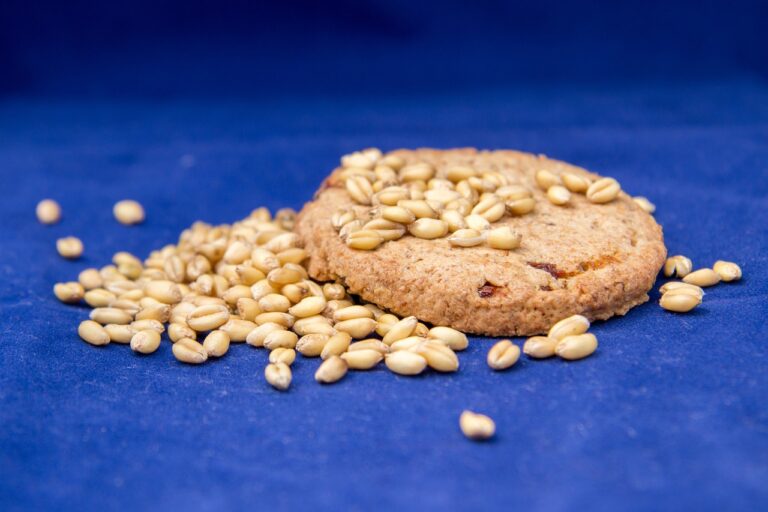Coping with Chronic Pain in Multiple Sclerosis: Managing Symptoms and Flare-ups
all panel mahadev book, lotus bhai 365 login, allpaanel:Living with multiple sclerosis (MS) can be challenging, especially when dealing with chronic pain and flare-ups. Managing symptoms and finding ways to cope with the pain is essential for maintaining a good quality of life. In this article, we will discuss some strategies for coping with chronic pain in multiple sclerosis and managing symptoms and flare-ups effectively.
Understanding Chronic Pain in Multiple Sclerosis
Chronic pain is a common symptom of MS, affecting up to 50% of individuals with the condition. The pain can vary in intensity and duration, ranging from mild discomfort to severe and debilitating pain. It can be caused by nerve damage, muscle spasms, inflammation, or other factors related to MS.
Some common types of chronic pain experienced by individuals with MS include:
– Neuropathic pain: shooting or burning pain caused by damage to the nerves
– Musculoskeletal pain: pain in the muscles, joints, or bones
– Spasticity: muscle stiffness and spasms that can be painful
In addition to chronic pain, individuals with MS may also experience flare-ups, also known as relapses or exacerbations. These flare-ups involve a temporary worsening of symptoms, including pain, fatigue, weakness, and other MS-related issues.
Managing Chronic Pain in Multiple Sclerosis
There are several strategies that can help individuals with MS manage chronic pain effectively:
1. Medication: Your healthcare provider may prescribe medications to help manage pain, such as nonsteroidal anti-inflammatory drugs (NSAIDs), muscle relaxants, or anticonvulsants. It’s essential to follow your healthcare provider’s recommendations and dosages carefully.
2. Physical therapy: Physical therapy can help improve mobility, strength, and flexibility, reducing the risk of developing pain and stiffness. A physical therapist can also provide exercises and techniques to manage pain effectively.
3. Relaxation techniques: Relaxation techniques, such as deep breathing, meditation, or yoga, can help reduce stress and manage pain. Practicing these techniques regularly can improve overall well-being and quality of life.
4. Heat and cold therapy: Applying heat or cold packs to the affected areas can help alleviate pain and reduce inflammation. Experiment with both methods to see which works best for you.
5. Massage therapy: Massage therapy can help relax muscles, improve circulation, and reduce pain. A qualified massage therapist experienced in working with individuals with MS can provide relief from chronic pain.
6. Support groups: Joining a support group for individuals with MS can provide emotional support, practical advice, and encouragement. Connecting with others who understand what you’re going through can make a significant difference in how you cope with chronic pain.
Managing Flare-ups in Multiple Sclerosis
In addition to managing chronic pain, it’s essential to have a plan in place for dealing with flare-ups. Here are some tips for managing flare-ups effectively:
1. Rest: During a flare-up, it’s crucial to rest and conserve energy. Listen to your body and take breaks when needed to prevent exacerbating symptoms.
2. Stay hydrated: Drink plenty of water to stay hydrated and help your body cope with inflammation and other symptoms of a flare-up.
3. Follow your treatment plan: Follow your healthcare provider’s recommendations for managing flare-ups, including medications, physical therapy, and other therapies.
4. Communicate with your healthcare provider: Keep your healthcare provider informed about any changes in your symptoms or concerns during a flare-up. They can adjust your treatment plan accordingly to help you manage the symptoms effectively.
5. Stay positive: Maintaining a positive attitude can help you cope with the challenges of a flare-up. Focus on what you can do rather than what you can’t, and seek support from loved ones and healthcare providers.
FAQs
Q: Can diet and nutrition help manage pain in MS?
A: A healthy diet rich in fruits, vegetables, whole grains, and lean protein can help reduce inflammation and manage pain in MS. Consult with a healthcare provider or a dietitian for personalized recommendations.
Q: Are there alternative therapies that can help manage chronic pain in MS?
A: Some individuals with MS find relief from chronic pain with alternative therapies such as acupuncture, chiropractic care, or herbal supplements. Consult with your healthcare provider before trying any alternative therapies.
Q: How can I stay active with chronic pain in MS?
A: Staying active is essential for managing symptoms and improving overall well-being in MS. Low-impact exercises such as swimming, yoga, or tai chi can help improve strength, flexibility, and mood without exacerbating pain.
In conclusion, coping with chronic pain in multiple sclerosis requires a combination of strategies, including medication, physical therapy, relaxation techniques, and support from healthcare providers and loved ones. By developing a plan for managing symptoms and flare-ups effectively, individuals with MS can improve their quality of life and better cope with the challenges of the condition.







